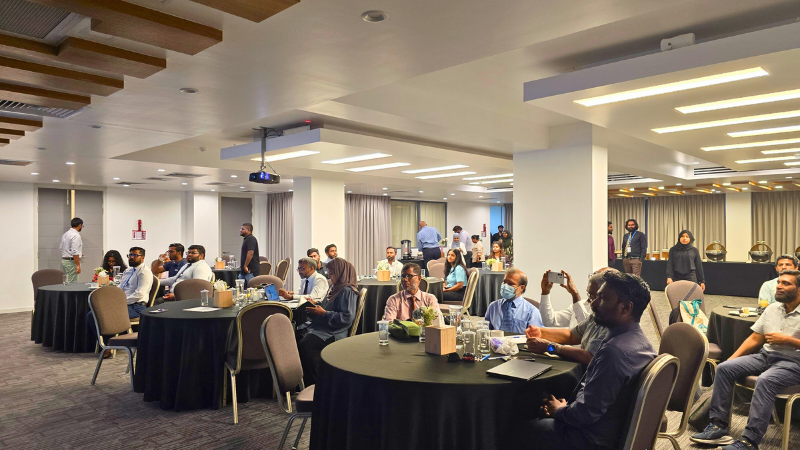The Ministry of Tourism and Environment (MoTE) convened a workshop today to establish coordination mechanisms for the National Adaptation Plan (NAP), a key initiative aimed at enhancing climate resilience through structured adaptation planning.
The project, “Advancing the National Adaptation Plan (NAP) of the Maldives,” seeks to formulate and implement NAPs to identify medium- and long-term adaptation needs while developing strategies and programs to address them. The overarching goal is to strengthen the Maldives’ resilience to climate change by enhancing capacities for planning, implementing, and monitoring adaptation interventions.

During today’s workshop the primary focus was on the establishment of a framework and mechanism for the NGO/CSO Advisory Committee to support the project’s Steering Committee. Additionally, participants engaged in discussions to identify and validate existing interagency coordination mechanisms for climate change adaptation, as well as to assess barriers and explore solutions to enhance collaboration.
The workshop commenced with introduction from the Climate Change Department, followed by a presentation from the Project Management Unit (PMU) outlining the NAP project in the Maldives. The Ministry then presented the roles and responsibilities of the Project Steering Committee and the NGO/CSO Advisory Committee. Participants also had the opportunity to discuss and define the criteria for the selection of NGOs and CSOs for the advisory committee, with insights from these discussions contributing to its formal establishment.
In the second half of the workshop, the Ministry introduced key concepts related to the horizontal and vertical integration of the NAP process. This was followed by a roundtable discussion on identifying existing interagency coordination mechanisms, which the NAP can build upon, as well as providing solutions to the barriers in coordination.
The development of the NAP in the Maldives is supported by funding from the Green Climate Fund (GCF). The NAP Maldives Project is implemented by MoTE in collaboration with the United Nations Environment Programme (UNEP).






